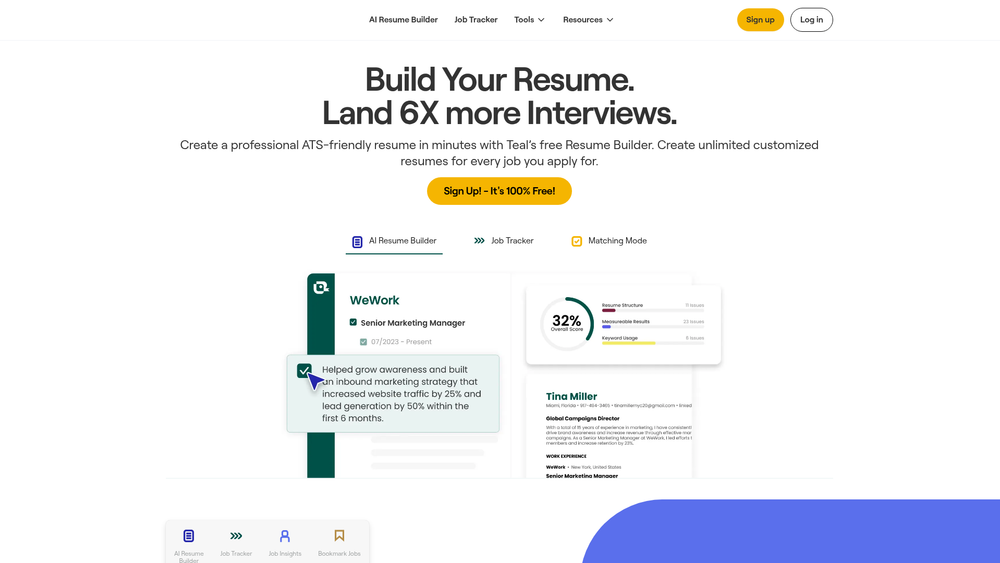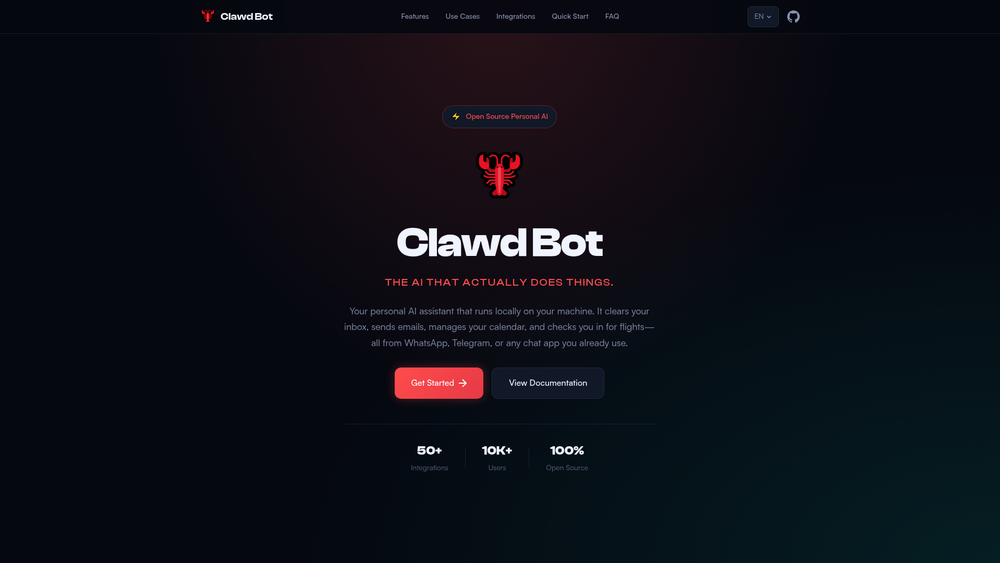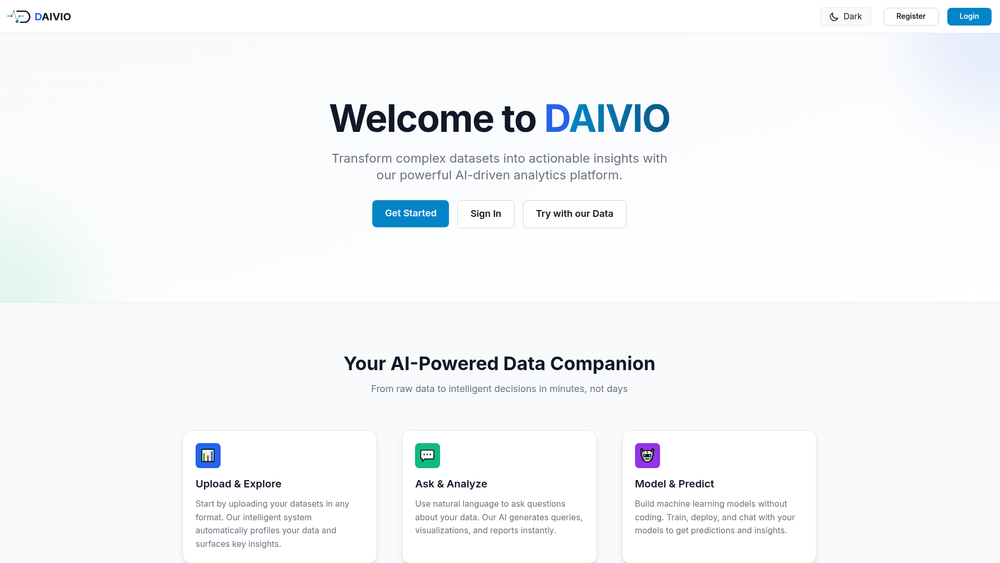Parseium is an AI-powered platform designed to simplify web scraping and data extraction. It transforms any webpage into a structured, type-safe JSON API with a unique, low-latency endpoint. Instead of writing complex parsing code and managing infrastructure like browsers and proxies, users can simply provide a URL and let Parseium's AI generate a custom, high-speed parser.
The primary benefit of Parseium lies in its efficiency and ease of use for developers. It eliminates the need for manual parser maintenance, handles proxy management, and ensures data is returned in a predictable, typed format. This allows developers to focus on utilizing the data rather than the cumbersome process of acquiring it. The platform is ideal for developers, data scientists, and businesses that need reliable and fast access to web data for their applications and analytics.
Parseium offers two main ways to integrate: a full scraping service where it handles everything from fetching the URL to parsing, and a /parse endpoint that accepts raw HTML. This flexibility allows it to be dropped into any existing scraping stack, whether it's a custom headless browser setup or another scraping API provider. With features like self-healing parsers and deterministic outputs, Parseium provides a robust and cost-effective alternative to building in-house solutions or using general-purpose LLMs for data extraction.
Features
- AI-Powered Parser Generation: Provide a URL and Parseium's AI automatically creates a custom, high-speed parser and a unique API endpoint for that specific page structure.
- Managed Infrastructure: Includes always-warm browsers and managed premium proxies, eliminating cold starts and the complexities of managing your own scraping infrastructure.
- Type-Safe & Deterministic JSON: Automatically defines types for extracted data (e.g., String, Number, Boolean) and returns it in a predictable JSON format, ensuring you always know the structure of the response.
- Flexible Integration: Use the full scraping API by providing a URL, or integrate with your existing setup by sending raw HTML to the
/parseendpoint for low-latency data structuring. - Self-Healing Parsers: The platform automatically adapts to most DOM changes on the target website, significantly reducing the need for manual parser maintenance and preventing breakage.
- Chat-Based Editing: Users can edit or refine the data extraction logic by interacting with the system via a chat interface, making adjustments intuitive and quick.
- High Performance: Most pages are parsed in under 10 milliseconds, providing rapid data extraction suitable for real-time applications.
How to Use
- Sign Up & Get API Key: Create an account on the Parseium website to get your unique API key.
- Choose Your Method: Decide whether you want Parseium to handle the entire scraping process (URL to JSON) or just parse HTML you provide.
- Scrape a URL Directly: To have Parseium manage everything, make a POST request to your unique scraper endpoint (
https://api.parseium.com/v1/scrape/{id}), passing the target URL in the request body. Parseium will fetch the page, run its browser, and return the extracted JSON. - Parse Your Own HTML: If you already have a crawler, send a POST request to the
/v1/parse/{id}endpoint. Include your API key in the headers and the raw HTML content in the request body. Parseium will return the structured JSON almost instantly. - Integrate the Data: Use the returned JSON data directly in your application. The data is type-safe and follows a consistent schema defined by the parser.
- Refine if Needed: If the initial extraction isn't perfect, use the platform's chat interface to make adjustments to the parser's logic without writing any code.
Use Cases
- E-commerce Price Monitoring: Automatically track prices, stock availability, and product details across multiple competitor websites. The structured JSON output makes it easy to feed this data into a pricing database or analytics dashboard.
- Lead Generation: Extract contact information, job titles, and company details from business directories or corporate websites to build targeted lead lists for sales and marketing teams.
- Content Aggregation: Build a news aggregator or content platform by scraping articles, headlines, and publication dates from various online sources. Parseium ensures the data is consistently structured for easy display.
- Financial Data Collection: Gather stock prices, market news, or financial statements from finance portals. The high speed and reliability of the API are crucial for time-sensitive financial applications.
- Real Estate Market Analysis: Scrape property listings from real estate websites to collect data on pricing, location, features, and availability for market analysis or investment purposes.
FAQ
What happens if the website's layout changes?
Parseium's parsers are designed to be "self-healing." The AI can automatically adapt to many common changes in the website's DOM structure, ensuring your data extraction continues to work without manual intervention. For major changes, you can easily refine the parser via the chat interface.
How is Parseium different from using a large language model (LLM) for scraping?
Parseium is purpose-built for data extraction. This results in lower costs, higher speeds (under 10ms parsing), and deterministic, type-safe JSON output. Unlike an LLM, you get a predictable structure every time, not a probabilistic one.
Can I use my own proxies or browser setup?
Yes. Parseium's /parse endpoint is designed for this. You can use your own infrastructure (headless browsers, scraping APIs, proxies) to fetch the raw HTML and then send it to Parseium for fast, reliable parsing into structured JSON.
What kind of data types does Parseium support?
The platform automatically detects and assigns appropriate data types, including String, Number, Boolean, Date, Array, and Object, ensuring the resulting JSON is type-safe and easy to work with.
How do I create a new parser?
You simply provide a URL. Parseium's AI analyzes the page and automatically generates a typed schema and a dedicated API endpoint for it. You can also choose from a library of pre-built parsers for common websites.
What are the rate limits?
During the beta period, the /parse endpoint offers unlimited requests with a rate limit of 1 request per second, making it very generous for development and production use.
What programming languages can I use with Parseium?
Parseium provides a standard REST API, so you can call it from any programming language or environment that can make HTTP requests, including Node.js, Python, Go, Ruby, and more.




